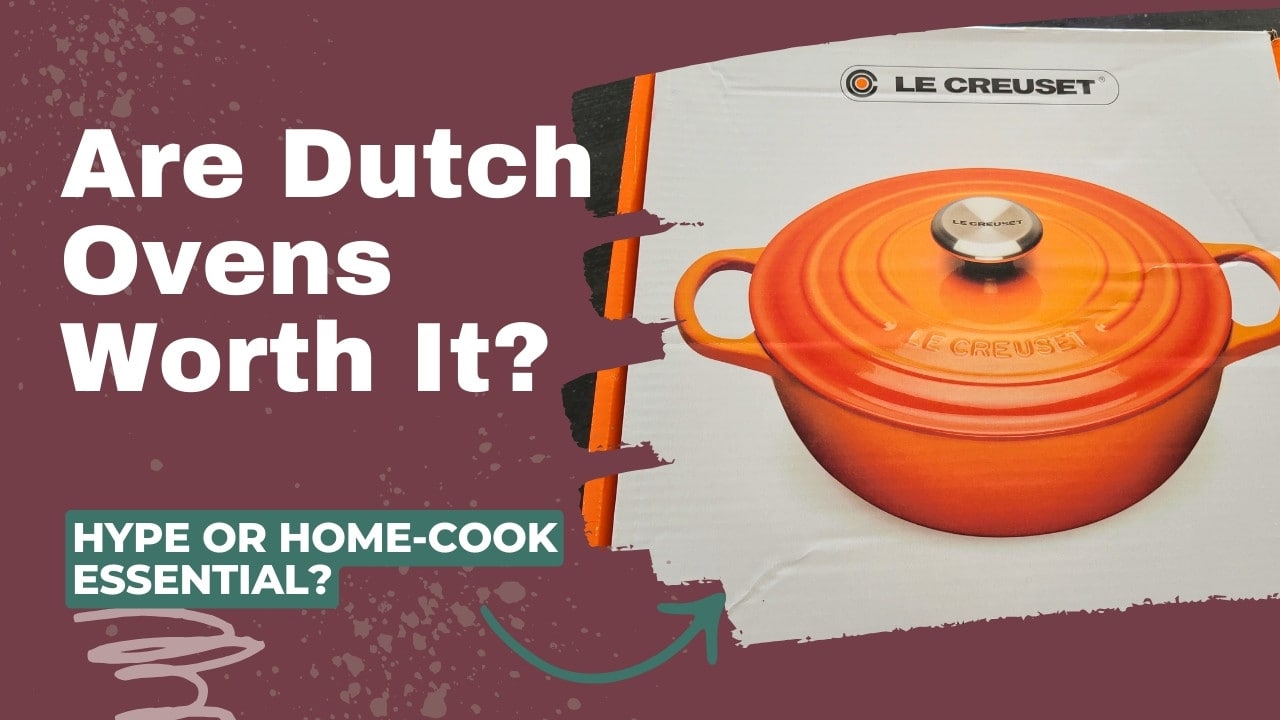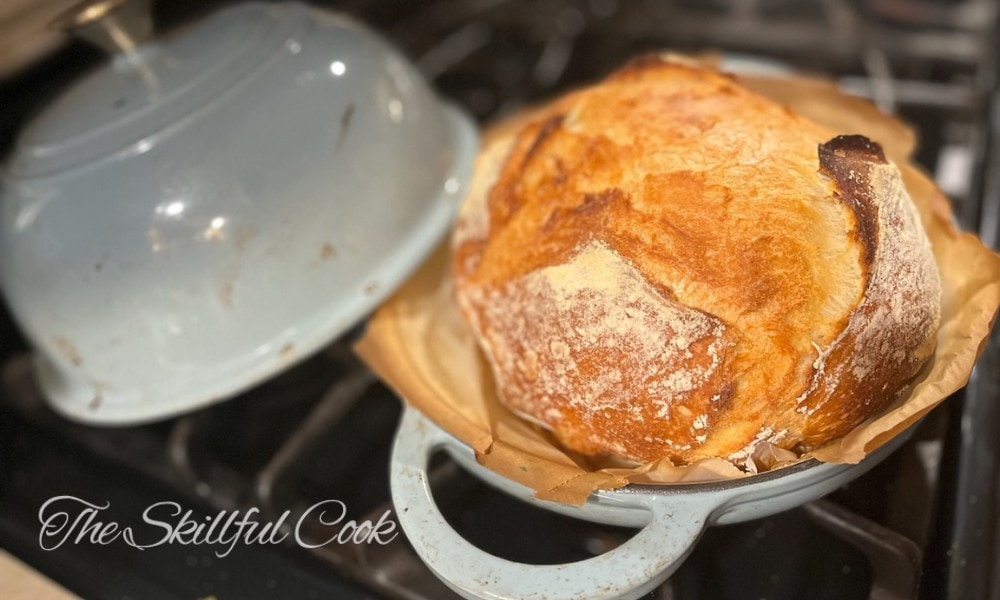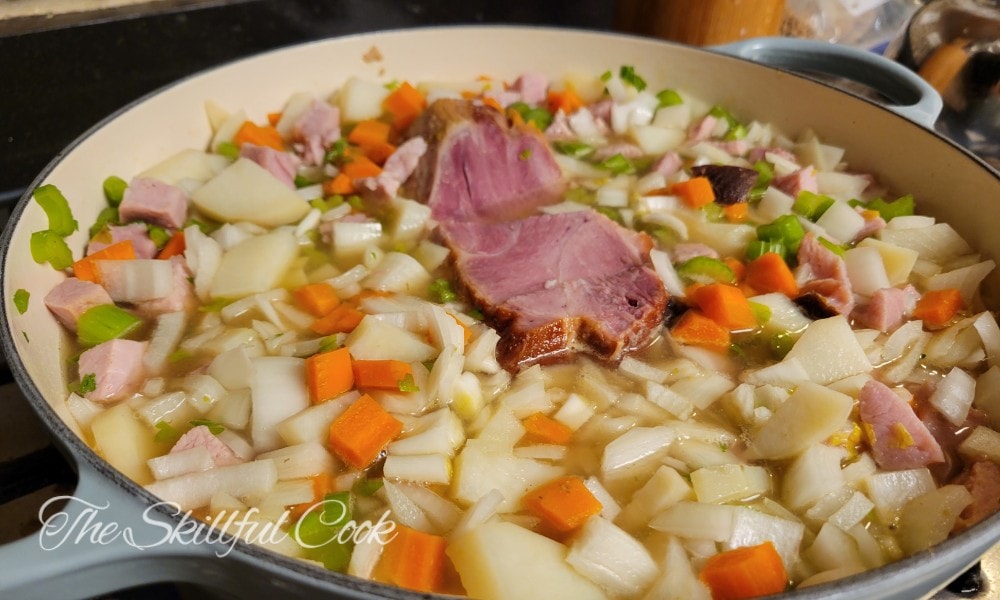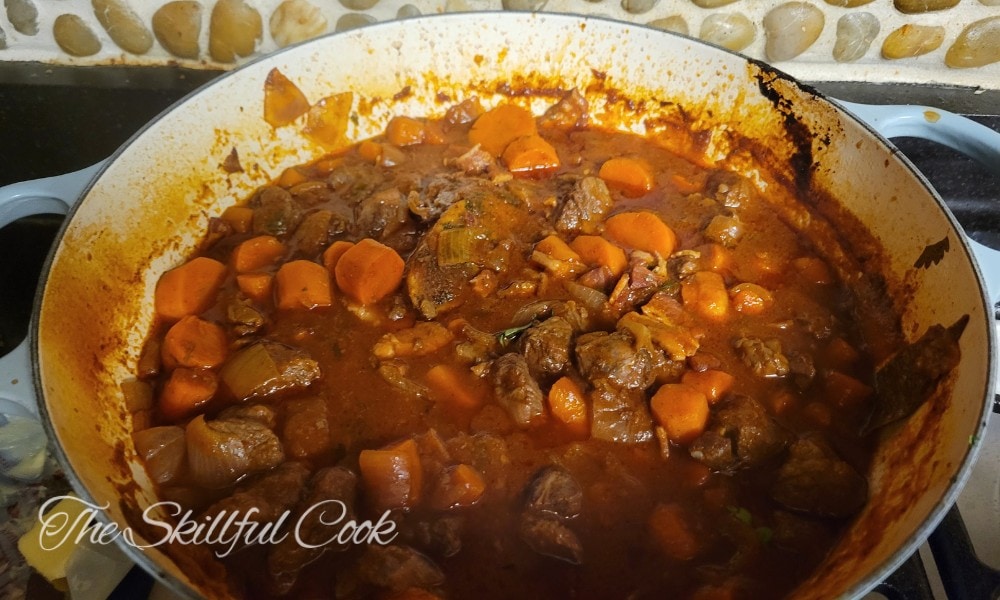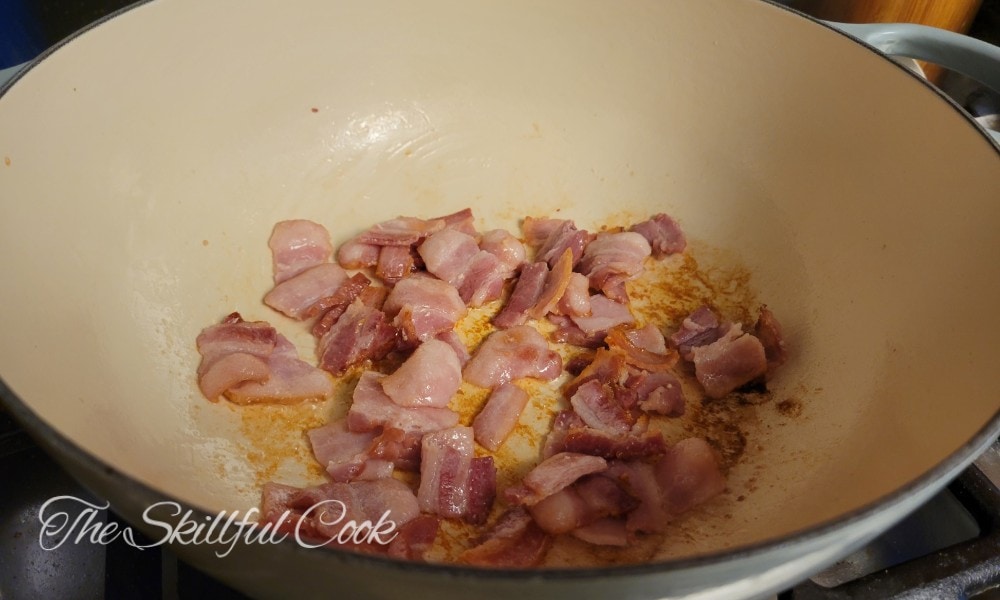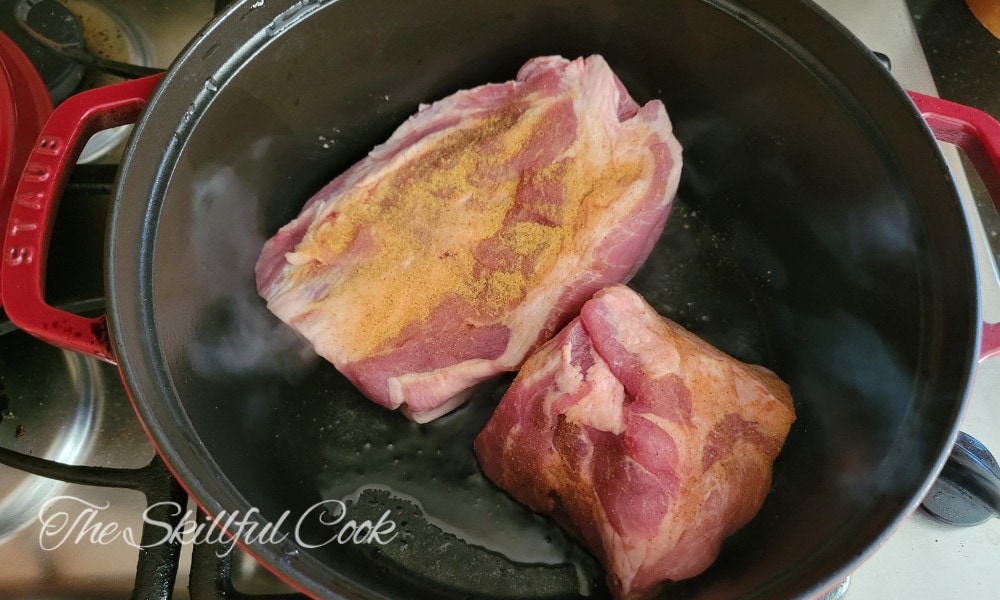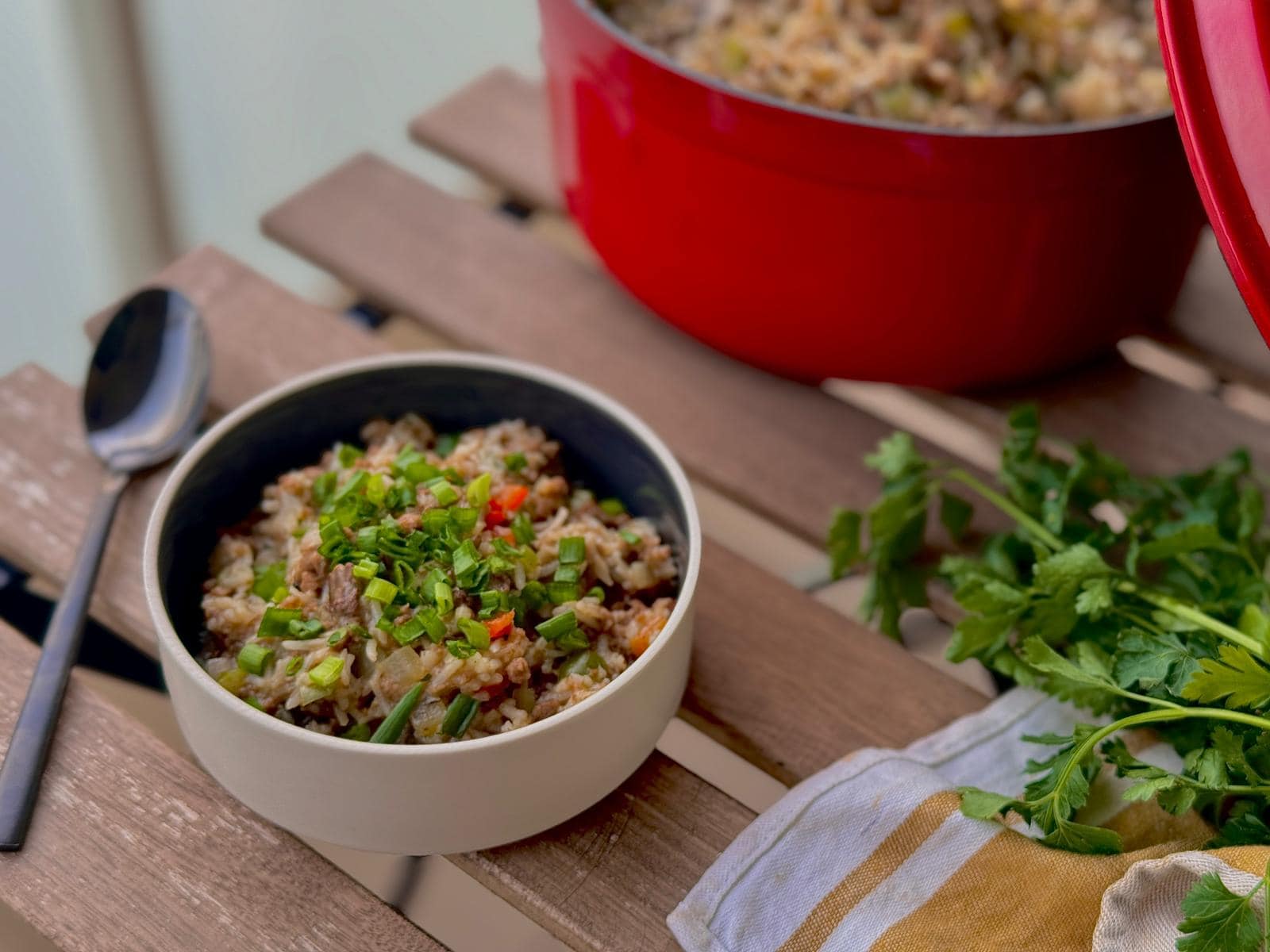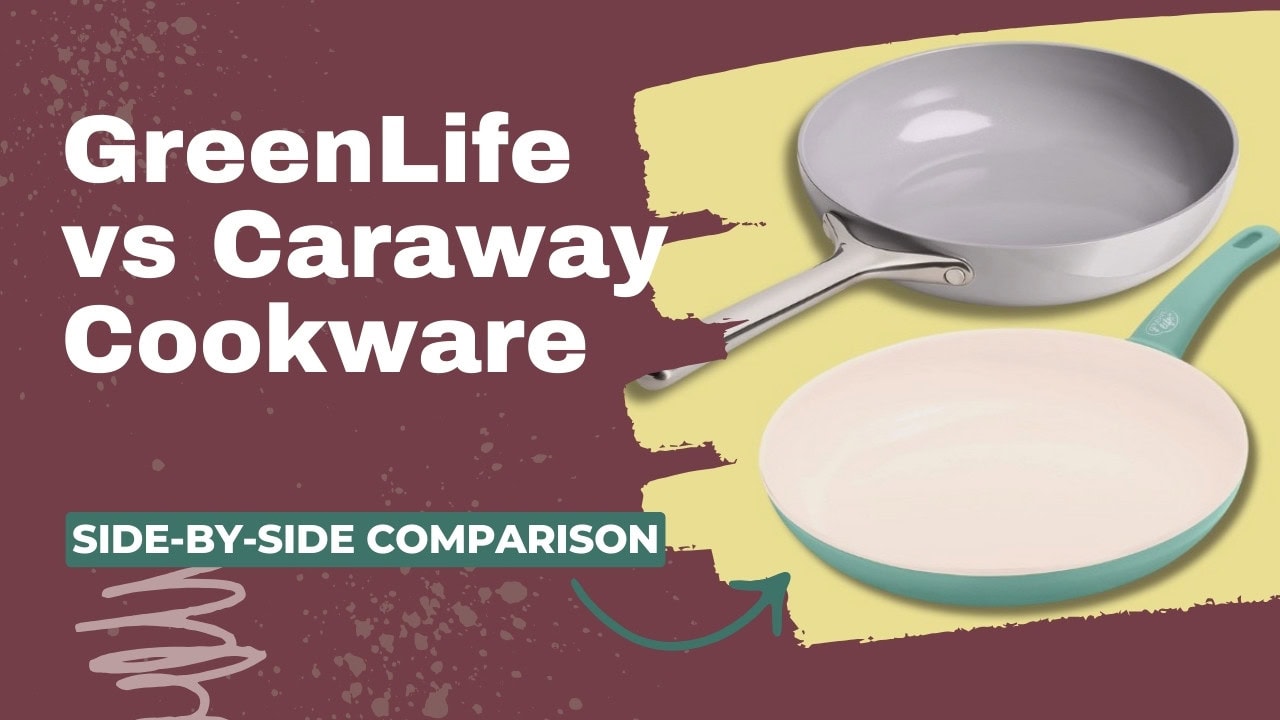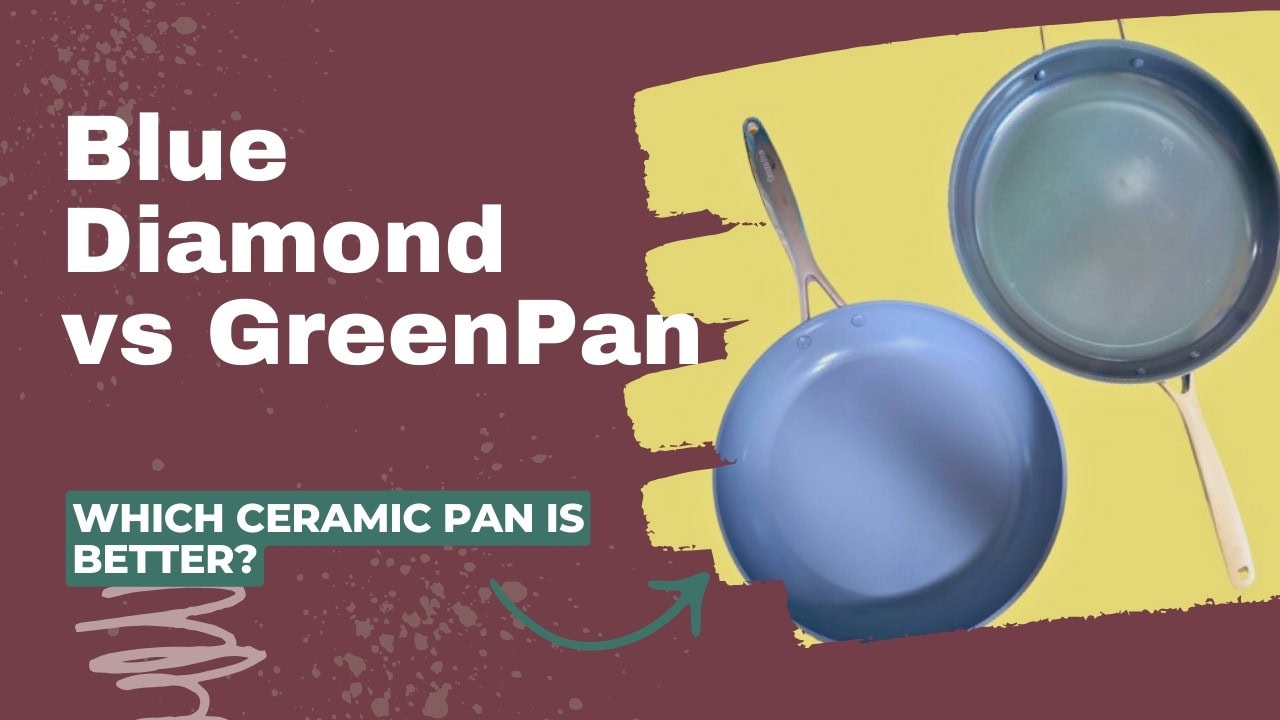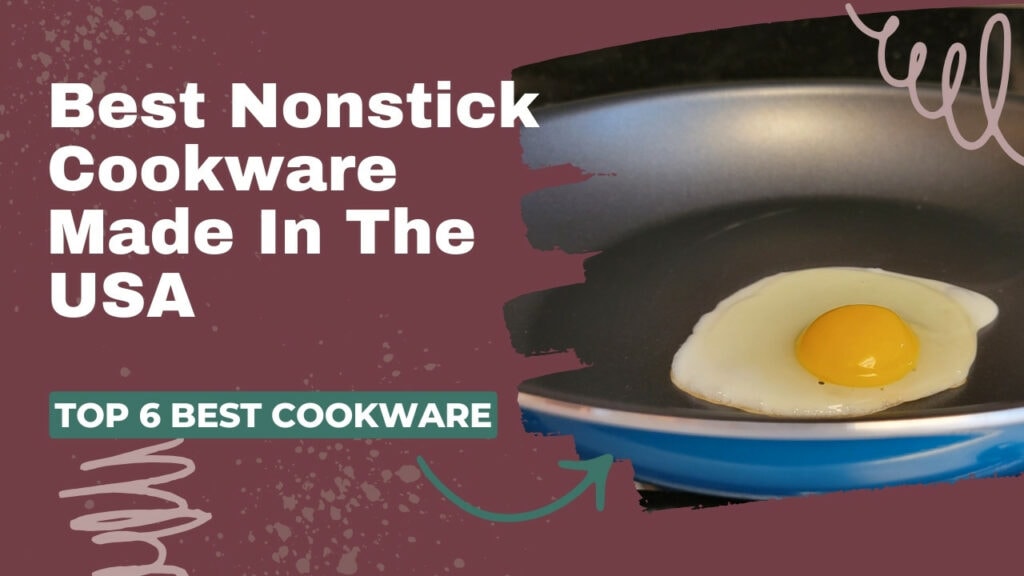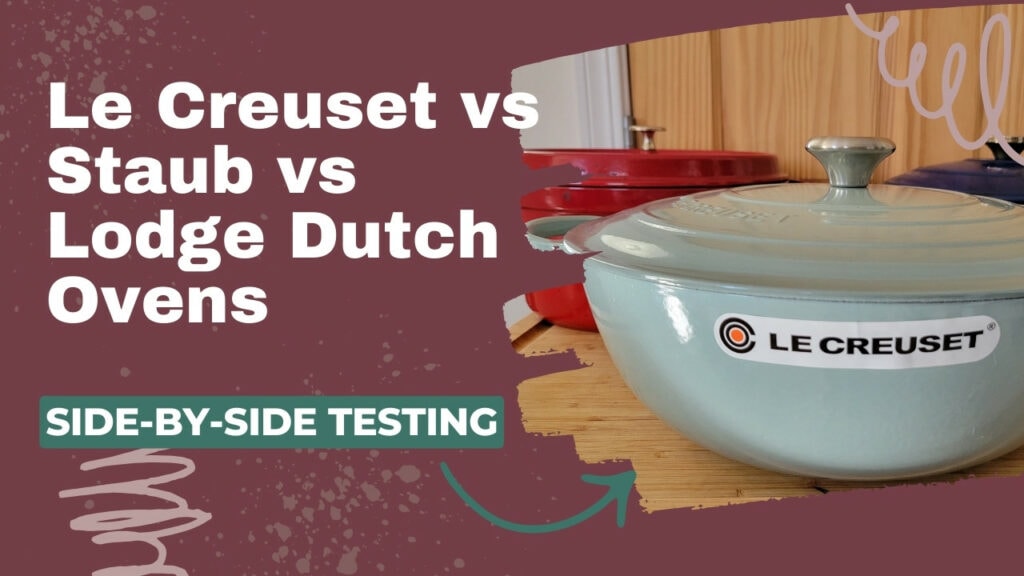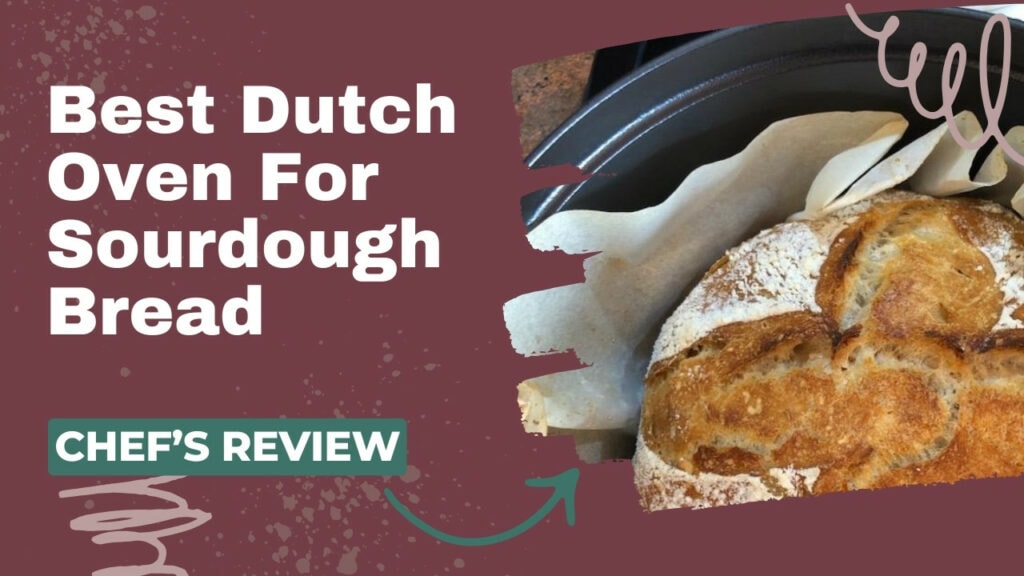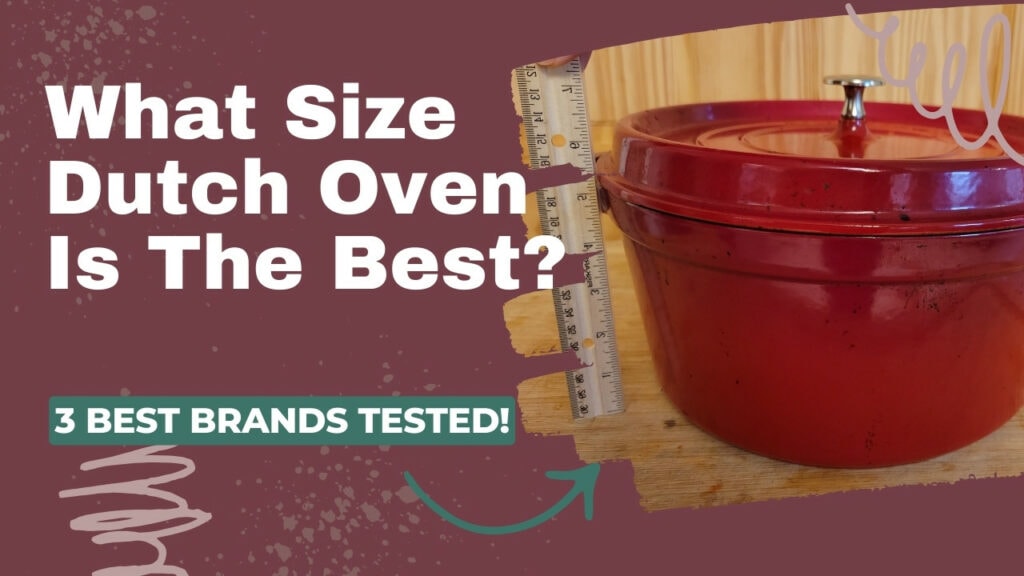I remember the first time I was seduced into entering the Le Creuset store by the stunning, colorful Dutch ovens. They were so beautiful and clearly well-made that I couldn’t help myself.
Unfortunately, that first trip ended with me swiftly exiting after I looked at the price!
But now that I have more experience and a slightly bigger budget, my attitude has changed. So, are Dutch ovens worth the investment? I’m going to take you through all the reasons why I think that they’re worth every penny.
Are Dutch Ovens Worth Buying?
Dutch ovens are worth buying because they are heirloom pieces that serve many purposes. The enamel cast iron options, in particular, have excellent heat retention and seamlessly transfer from stove to oven to table.
If you like slow cooking, braising, roasting, or baking sourdough, a Dutch oven is well worth the investment.
Best Material for Dutch Ovens
There are a lot of choices of Dutch oven materials on the market, but they are not all made equally. Enamel cast iron, cast iron, stainless steel, nonstick, and ceramic options are available.
Personally, I think the best Dutch ovens are made from cast iron or enamel cast iron. Iron has the best heat retention, it’s durable, and it handles high heat well. Cast iron Dutch ovens have heavy, tight-fitting lids that trap moisture and create an oven-like environment. Food in a cast iron Dutch oven cooks from all sides!
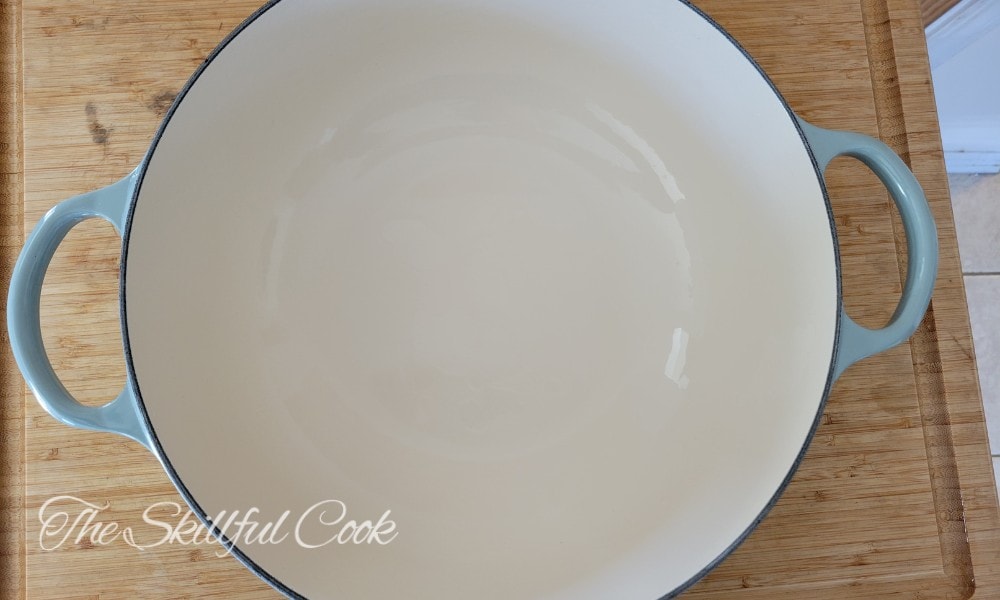
Pure ceramic comes in a close second, but it’s much more susceptible to thermal shock. I would avoid nonstick Dutch ovens in most cases, because the aluminum core is too light for even cooking, and the coatings are not safe on high heat.
Stainless steel is an expensive choice for a Dutch oven, and not worth it when considering how poor the heat retention is compared with cast iron. The lids are also often not heavy enough to create that tight seal that you need. It’s worth saving a little extra for the enamel cast iron version.
Versatility
The main reason I recommend Dutch ovens is because they are so versatile.
Dutch ovens are excellent for roasting, baking, boiling, sauteing, baking bread and slow cooking. They can be used without the lid as a regular pot, or you can add the lid to create an oven-like environment inside. They are true multi-taskers that can be utilized on the stove, transferred to the oven, and then onto the table for serving. You can even keep food in them in the fridge.
The enamel cast iron versions are compatible with all cooktops, including induction, and are oven-safe to 500°F.
Because of this versatility, a Dutch oven can replace the need for other pots in your kitchen, like ceramic casserole dishes or large stock pots. This can save you a lot of money in the long run.
Aesthetic Appeal
Another reason I think enamel cast iron Dutch ovens are so great is the beautiful color options available.
This colorful cookware is more than just a useful pot; it is also a beautiful piece of kitchen decor. You can choose one that fits your interior design and store it on the stovetop or on open shelving to add a pop of color.
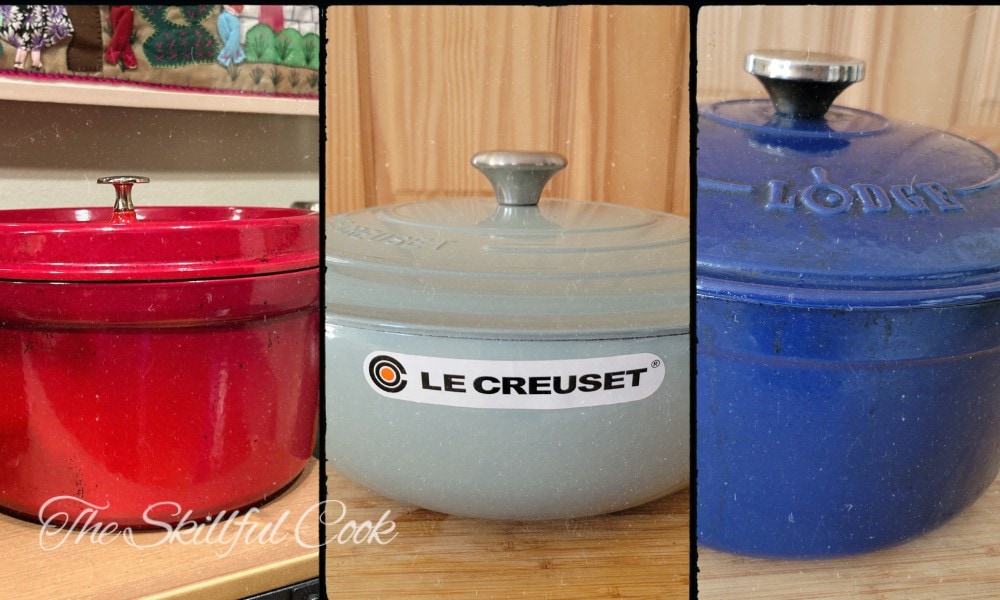
Related: Lodge vs Le Creuset vs Staub Dutch Ovens
This visual appeal also makes it a beautiful addition to your table. There’s no need to portion your dish in the kitchen. Instead, you can place a beautiful Dutch oven on the table for everyone to enjoy family-style.
Heirloom Quality
It is totally worth investing in a high-quality enamel cast iron Dutch oven because it can potentially last you a lifetime. If you can find a vintage Dutch oven for a bargain, it’s likely to still be perfectly good to cook with! However, vintage pieces are risky because they can contain lead or other heavy metals. Make sure to test an old Dutch oven for lead before you buy one.
If you want a Dutch oven to last forever, though, you need to treat it with care. Always clean it by hand, avoid dropping it, and don’t use metal utensils or steel wool on the surface.
Expensive Name Brands vs Cheap Dupes
Many customers are put off by the cost of expensive name-brand enamel cast iron Dutch ovens like Le Creuset, and Staub, but there are a few reasons why these prices are justified, in my professional opinion.
The main reason is the risk of leachable lead in cheap porcelain enamel made without strict quality control. The brands I mentioned are both California Prop 65 compliant and either ‘lead-safe’ or ‘lead-free.’ This is not always a guarantee with cheap dupes – especially if purchased outside the US or parts of the EU. At The Skillful Cook, we dove deep into the research on the safest non-toxic Dutch oven, so check out our recommendations!
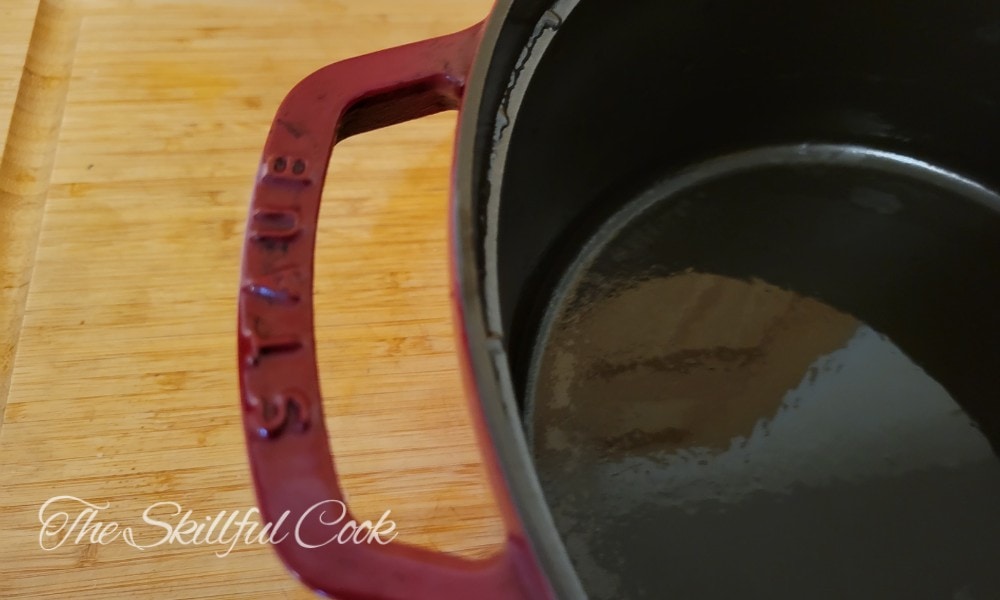
High-quality Dutch ovens have very durable porcelain enamel that is unlikely to chip or wear down even after years of use. Cheaper dupes – even from well-known brands like Lodge – often have fewer or thinner layers of enamel that are much less hardy. This can wear down with consistent use and expose the cast iron beneath, making it prone to rust.
But high prices don’t automatically guarantee safety. We decided to put these lead safety claims to the test. Read the results here.
Who Shouldn’t Buy a Dutch Oven?
Even after talking about all the selling points of Dutch ovens, there are still certain people I would not recommend these pots to.
If you don’t often slow cook, bake bread, or make roasts, then you may not get as much use out of a Dutch oven. Before buying one, I suggest assessing your cooking style to determine how much use you would get out of it.
If you have limited strength or mobility, I would avoid iron Dutch ovens because they are so heavy. The same goes for anyone with glass cooktops. It’s possible to use a Dutch oven on glass, but they are very likely to scratch the surface.
Conclusion
To sum this all up, if it suits your cooking style, then I think a Dutch oven is well worth the investment. It’s such a versatile piece of cookware, and it could even outlast you if you buy a high-quality option!
If you have any more questions about Dutch ovens and whether they would suit your kitchen, don’t hesitate to drop them below.

